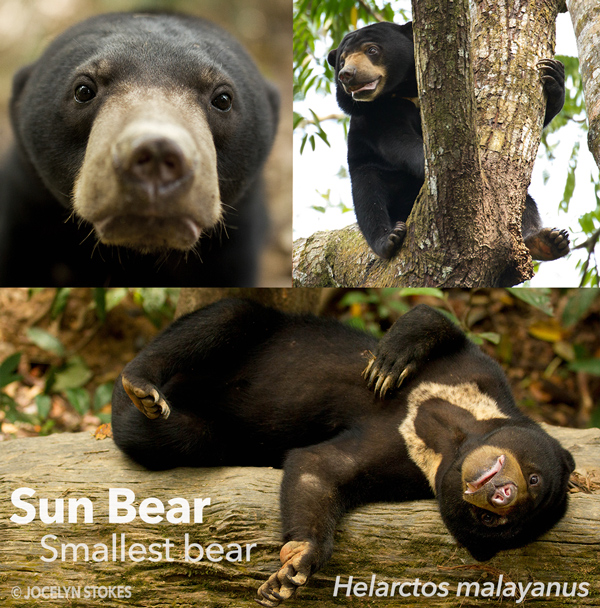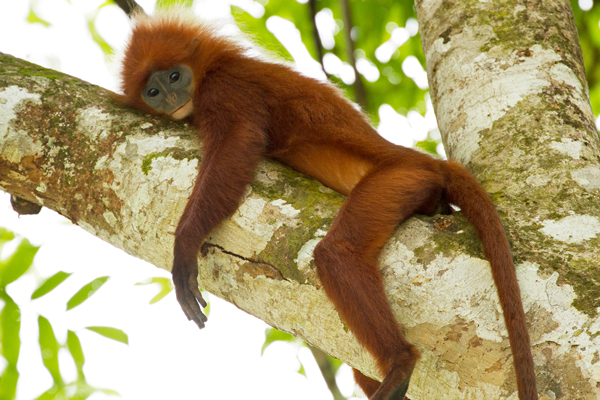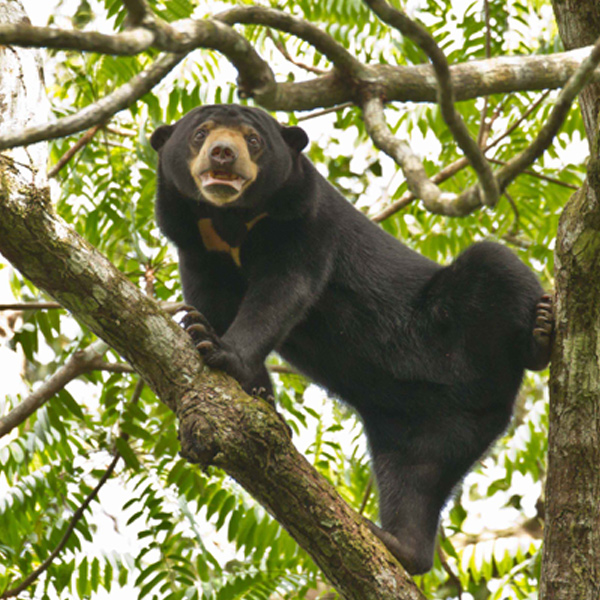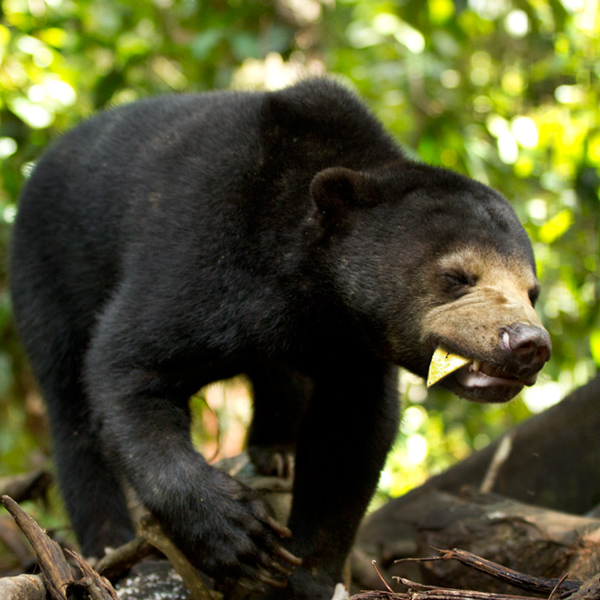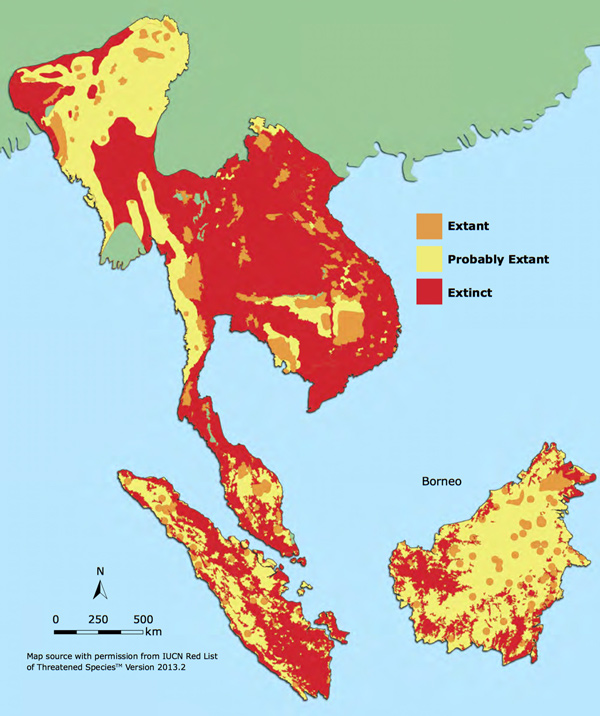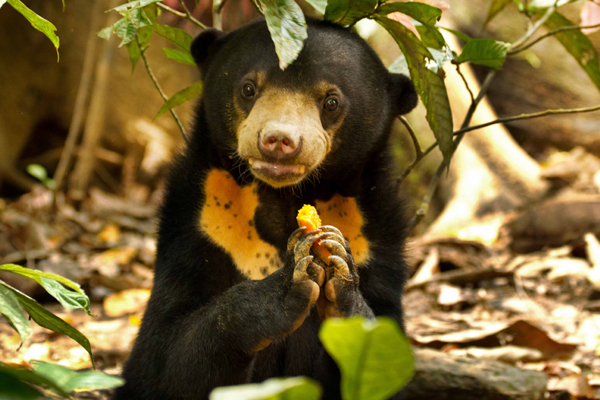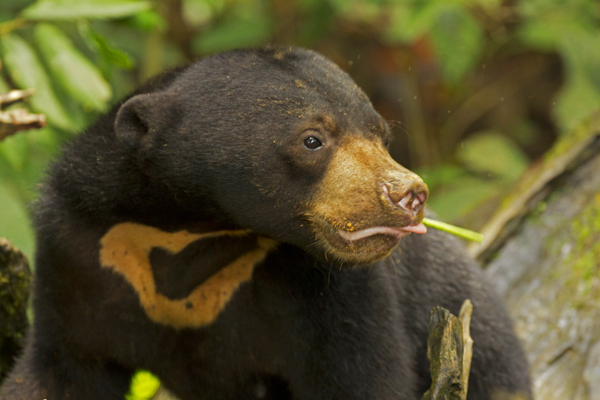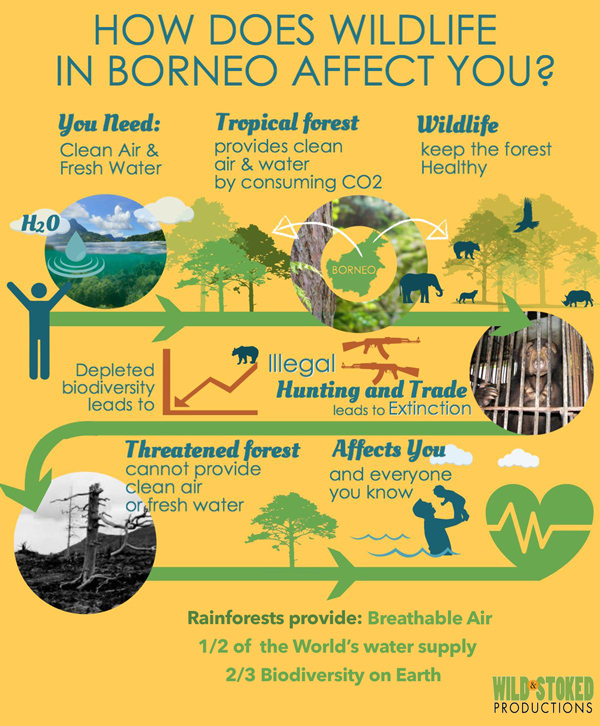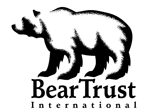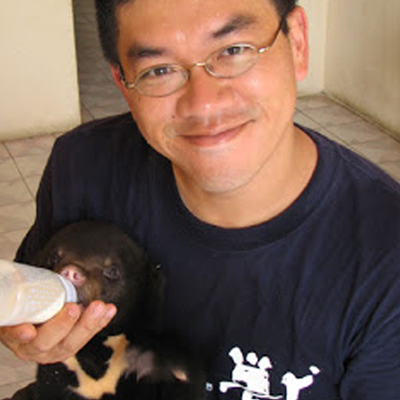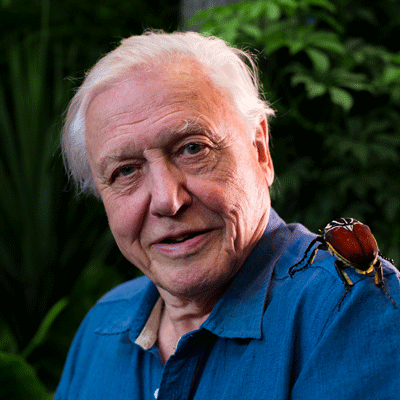Species In Danger
Survival of the Sun Bears is an awareness campaign project working to share the story of the world’s smallest bear and the plight of its survival.
The Story
Survival of the Sun Bears is a conservation campaign focused on building a global awareness of sun bears, and what they need to survive. We are working to create story-telling media that shares the story of sun bears in Borneo. Media developed is made available to non-commercial parties for education, advocacy, and fundraising.
More
Borneo
Located in Southeast Asia, Borneo is the third largest island in the world. The island is shared among three countries: Brunei, Malaysia and Indonesia.
It is one of the most biologically diverse places on Earth. Indigenous tribal groups have lived amongst the forests of Borneo for thousands of years. Merely a hundred years ago native headhunters ruled remote parts of the island. Indigenous tribal groups still strive to remain intact today. The combination of geographical history and varied terrain of Borneo makes the island a biologically diverse ‘hot-spot’ of evolution.
For over a decade, scientists in Borneo have been discovering at least three new species per month.
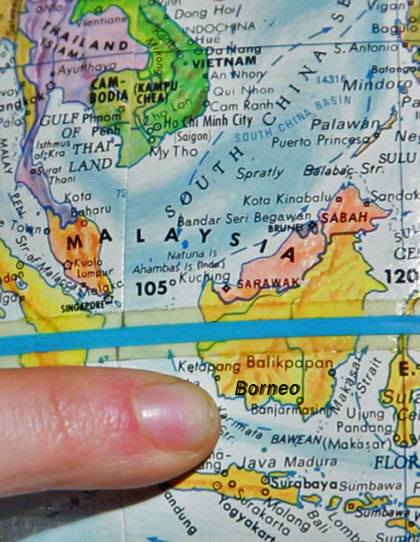
Biologically Diverse
Borneo is home to more than 15,000 species of flowering plants, at least 222 different species of mammals, 420 resident birds, 100 different amphibians, more than 700 species of trees, and more than 500 species of wild fruit. All these species have evolved to live in their unique forest environment.
More
Sun Bear: The World’s Smallest Bear
The sun bear is the smallest of all eight bear species. Can you name all eight? Sun bears are also the least known and least studied species of bear. Male sun bears range from 60-150 lbs. (20-40 kg), while female sun bears range from 40-80 lbs. (30-70 kg). Sun bears live in the tropical forests of Borneo. They are the most arboreal of all bears, which means they spend most of their time in trees. They each have a unique "sunshine-patch" on their chest. Helarctos malayanus (Sun Bear) Their extremely long tongues and claws are specialized for life in the trees. They can use their powerful claws to crack coconuts wide open, they have a keen sense of smell for hunting termites and they love honey. Historically, sun bear populations were found in most of mainland Southeast Asia. Now, most of these populations are extinct. The remaining wild sun bear populations inhabit the rain forests of Borneo. Little is known about wild sun bears because they are so elusive in their jungle homes, so there is much to learn! Further research about wild sun bears is essential. We DO know that sun bears do not need to hibernate, like other bears. Sun bear cubs tend to stay with their mother for at least 18 months. Sun bears eat an omnivorous diet of mostly insects and fruit. Mmm… termites! More
Threats to Sun Bear Survival
In total sun bear populations have declined by at least 30% in the last 30 years (IUCN 2007). Although, sun bears have been listed as “vulnerable” on the IUCN Red List of Threatened Species since 2007, the current status of sun bear populations is unknown because there is not enough information about wild sun bear populations. This is why sun bear research is essential! Scientists are afraid that sun bears are actually an endangered species, but the lack of data available does not allow for proper protection. Sun bears face three primary threats: These little known bears are faced with extinction due to the triple threat of extreme habitat loss, poaching and the illegal pet trade. More
Habitat Loss
Habitat loss alone has reduced sun bear population size by at least 75%. The rapid loss of forests in SE Asia due to unsustainable logging practices and agricultural development is leaving sun bears homeless. In Malaysia, Borneo, deforestation for the development of palm oil plantations continues to be one of the biggest causes for habitat loss. Palm oil is in 50% of all packaged goods today.
Illegal Pet Trade
Baby sun bears are extremely small and cute, which makes them a target for the exotic pet trade. Often, mother bears are killed and the baby bears are kept as pets. Keeping a sun bear as a pet is cruel, for they live a horrible life behind bars, kept in chains and cages. If these bears are lucky enough to be rescued, they have been deeply traumatized, deprived of a natural life, and require years of rehabilitation to regain sanity.
Poaching
Commercial poaching is widespread in Asia, which supplies the wildlife trade market (and black market) where consumers purchase bear paws, gall bladders (or bile) and other bear parts for Traditional Chinese Medicine and expensive delicacies. Bear bile farms can be found in China, Vietnam and Korea, where bears are commercially-farmed in small cages and bile is extracted from their gall bladders to make traditional medicines.
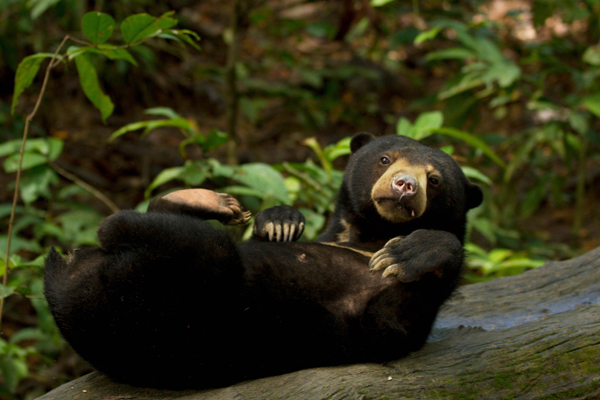
Keystone Species
"They are like forest farmers"
Sun bears create habitat for many other creatures by using their long claws to dig holes in trees and fallen logs.
Sun bears are important seed dispersers for many fruit trees because they eat such a variety of fruits and travel great distances in the forest. In this way, sun bears keep the forest healthy, diverse and alive!NOW is our chance
NOW is our chance to conserve and delight in these special bears. With our forces combined, sun bears can thrive again! There are four things that you can do to help.
1. Get Involved
YOU can make a difference! Share sun bears with your community. We truly can help sun bears if more people know about them.
![]() Share the sun bear story. Support conservation research, which is critical in understanding animal behavior and discovering innovative ways to protect these endangered bears. Survival of the Sun Bears is working to develop conservation research, education and advocacy programs.
Share the sun bear story. Support conservation research, which is critical in understanding animal behavior and discovering innovative ways to protect these endangered bears. Survival of the Sun Bears is working to develop conservation research, education and advocacy programs.
More
2. Be a Smart Consumer
Just Say NO to (Unsustainable) Palm Oil!
Don’t! Support the mass destruction of rainforests with snacks, candy & fast food.

Palm oil is in 50% of packaged goods & cosmetics. Look at the labels before you buy!Many times palm oil can be listed under different names, such as: vegetable oil, Stearic Acid, Sodium Laureth Sulfate, Palmate, Cetyl Alcohol and Palm Kernel. Do! Purchase products that support sustainable agricultural practices.
3. Learn More
Get to know your Wilderness!
We all exist within one ecosystem – Earth. Each creature, species and habitat is connected and integral to the other. Most endangered species are being lost because we are not aware of them. The more we learn, the more we can teach, and the closer we become to regaining balance in this precious global environment that we all rely on for all life.
You can support the protection of wild places by voting with your dollar and your voice. Plant a tree. Ride a bike. Buy a hybrid. Limit your Paper-products. Buy Organic.
Pick at least One earth-friendly Goal and Stick to it!
4. Make a Financial Contribution
To support Survival of the Sun Bears visit donate to project page at Wild & Stoked Productions. Your contribution enables sun bear conservation efforts through research, out-reach and education. All proceeds go towards funding the Survival of the Sun Bears awareness campaign project.
Donate onlinewe need your support
"I hope with setting up the BSBCC, we can do more to help sun bears and their forest that is so precious to all of us. The challenge is huge, and I am ready to take the challenge. However, I simply cannot do this alone. Together we can make a difference for sun bears and the other magnificent species of this region."
"The only way to save a rhinoceros is to save the environment in which it lives, because there's a mutual dependency between it and millions of other species of both animals and plants."
"Every individual matters. Every individual has a role to play. Every individual makes a difference."
Help stop endangered species population decline
You can make a big difference in giving the wildlife in the tropical forests your help.
About
Survival of the Sun Bears is a conservation campaign focused on building a global awareness of sun bears, and what they need to survive. A project of Wild & Stoked Productions, we are creating story-telling media that shares the story of sun bears in Borneo.
Campaign for
- Environmental Education
- Increased Enforcement
- Wildlife protection
Associates Include
Contact us
14785 NW Perimeter Drive
Beaverton, Oregon 97006 USA
Phone: +1 503 858-2421
email: sunbear@wild-stoked-productions.com
